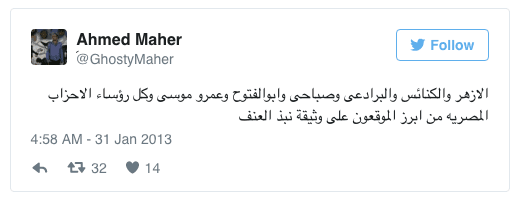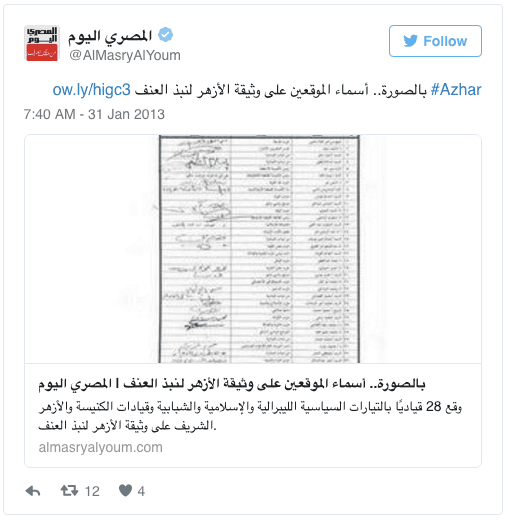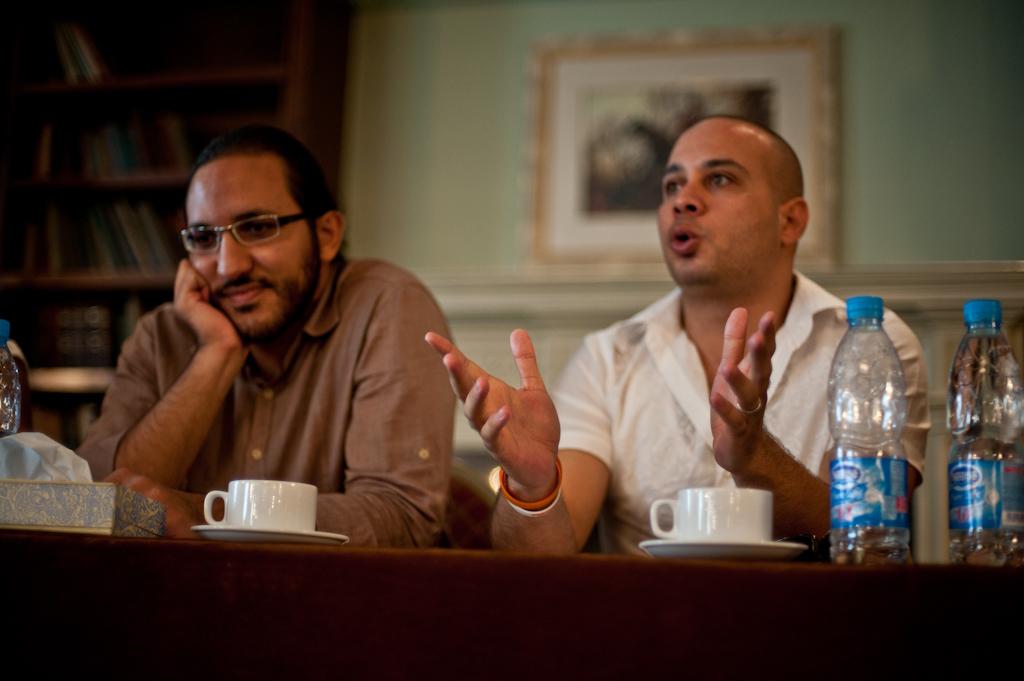Rival Egyptian parties sign document renouncing violence (VIDEO)
Ramy Raoof (L) and Ahmed Maher (R) speak at the Open Hands Initiative / GlobalPost ‘Covering a Revolution’ seminar in Cairo, October 2011.
CAIRO, Egypt — Rival Egyptian parties have signed a document renouncing violence during a meeting called by the country's top Islamic scholar.
Attendee Ahmed Maher tweeted about the decision made at the meeting, and linked to a photo of the signed document tweeted by another person who was in attendance.


Maher is the founder of the April 6 activist movement, Reuters. He said the other signatures on the document included those of liberal politician Mohamed ElBaradei, leftist leader Hamdeen Sabahi and "all the heads of the Egyptian political parties."
The meeting was chaired by Sheikh Ahmed al-Tayyeb, head of al-Azhar mosque and university, and also included the participation of the leader of the Muslim Brotherhood's political party, Saad el-Katatni, and Mahmoud Ezzat, the party's deputy leader.
While the leaders discussed the need to stop violence, Port Said continued to rage against Morsi:
The unrest appears to have subsided somewhat, despite overnight clashes in Cairo’s Tahrir Square, as well as in several other Nile Delta provinces. But tensions remain high and Egypt’s political woes are still unresolved.
Morsi is increasingly isolated as various and sometimes opposing forces call on him to take further action to calm the nation, including the army. Yesterday he rejected a three-point plan drafted by two major opposition blocs, the secular National Salvation Front and Salafist Al Nour Party.
The Central Security Forces, Egypt’s riot police, staged a small strike yesterday in which many of them refused to report for duty if they were not properly armed by the interior ministry to battle protestors. Analysts agree that if the police forces were to fragment or halt their work altogether, that it would prompt the army to intervene to stabilize the country.
“If there is a significant breakdown in the interior ministry, the army will intervene as this represents a threat to the security of the country,” said former Brigadier-General Mohamed Kadry Said.
Large demonstrations are planned for Friday, the traditional day of protest here, and may mobilize activists for further unrest. Coupled with dissent in police ranks, further demonstrations against the Morsi government would undoubtedly deepen the crisis and likely make his unyielding position in the face of domestic turmoil increasingly untenable.
We want to hear your feedback so we can keep improving our website, theworld.org. Please fill out this quick survey and let us know your thoughts (your answers will be anonymous). Thanks for your time!
